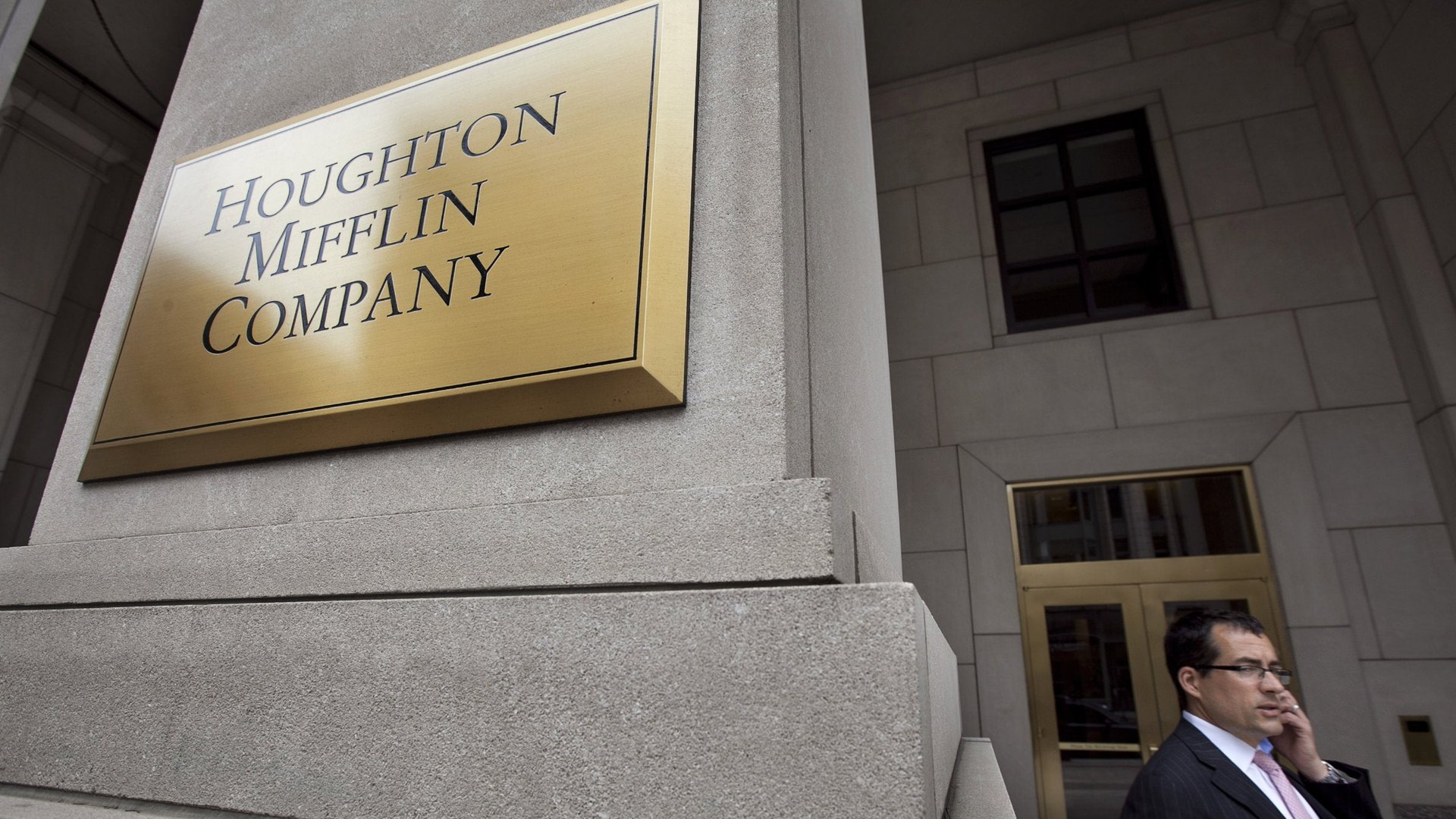181 years after its founding, this company is finally going public
The IPO market is a-Twitter with the debuts of young companies that seem to have enticing but uncharted futures.


The IPO market is a-Twitter with the debuts of young companies that seem to have enticing but uncharted futures.
Less obvious are the granfathers of business—companies founded almost 100 years ago—that also hope to cash in on the market’s appetite for IPOs.
Two ancient firms are offering public shares: Houghton Mifflin Harcourt, an educational and trade book publisher founded in 1832, and Avianca Holdings, which owns several airlines in Latin America that date back to 1919. Avianca shares debuted at $15 a share Wednesday, below target price. Houghton Mifflin shares are expected to be priced at $14 to $16 in an IPO next week.
While these older companies’ IPOs make less of a splash, they have some advantages in the market. They’re far easier for investors to value because of their long track records, said David H. Hsu, an associate professor of management at the Wharton School. “In some cases we have 100 years of data, so the valuation is going to be pretty tight,” he said.
Sometimes a senior company may go public when it needs to change its strategy or to “get currency for a merger and acquisition,” Hsu said. Houghton Mifflin’s IPO gives its major investors a way to cash out some of their stake in the company, which will not receive any proceeds from the IPO. Avianca is hoping to increase its total valuation with a presence in the US and to raise money in order to expand its fleet.
But don’t expect stock pickers to get too enthused about these older companies.
“Individual investors and the more active investors—they would be more attracted to the more high risk/high reward issues” that a young tech company offers. Pension funds and institutions are more likely to buy the stability of a seasoned company, Hsu added.
They just don’t have many to choose from. According to Nasdaq, 98% of the 256 IPOs from 2011-2013 that trade on the exchange are less than 50 years old. Exceptions included Fairway Group Holdings, founded in 1933, and Caesars Entertainment, established in 1937.
The median age of US companies staging IPOs varies from year to year, but has increased since the dot-com bubble burst in 2000 and the number of companies going public has dropped. In 1999, the median age hit a low of 4 (pdf), when there were 476 IPOs, and was up to 12 last year, with just 94 companies going public.
Back in 1999, during a froth of tech IPOs, two venerable companies took advantage of high market valuations and went public: Goldman Sachs and United Parcel Service. “That’s certainly a phenomenon we could witness” again, said Hsu.